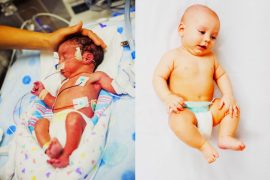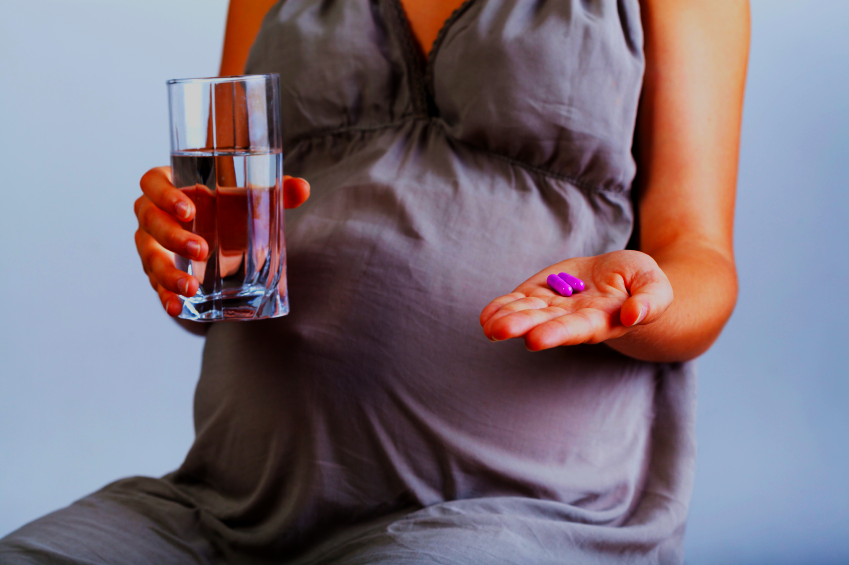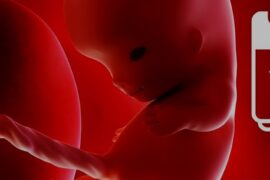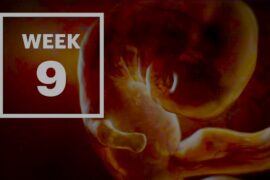What are the first symptoms of pregnancy?
The first symptoms of pregnancy can vary from woman to woman, but the most common sign is a missed period. This is due to the menstrual cycle preparing the body for a possible pregnancy each month by thickening the uterine lining.
However, it’s important to note that a delayed or missed period doesn’t always mean you’re pregnant, as it could be caused by stress or hormonal imbalance. Other early signs of pregnancy include tender and swollen breasts due to hormonal changes, nausea and increased urination one to two months after becoming pregnant, and fatigue likely caused by an increase in progesterone levels.
It’s important for women who think they may be pregnant to take a home pregnancy test or visit their doctor for confirmation. If you experience any of these symptoms and suspect you may be pregnant, it’s best to take a test as soon as possible so that you can begin receiving prenatal care if needed.
Pregnancy can cause a lot of confusion and have different signs for each person. Make sure to stay informed with this useful guide on the first signs of pregnancy.
When Do Pregnancy Symptoms Start?
Pregnancy symptoms can vary from woman to woman, and some women may not experience any symptoms at all. Generally, the earliest signs of pregnancy start in the first few weeks after conception. Common early signs of pregnancy include sensitivity to smell, tender breasts, fatigue, raised basal body temperature, implantation bleeding, thicker cervical mucus and frequent urination.
Mood swings are also a common symptom during this time. Other pregnancy symptoms may begin at any point during the first trimester. These can include nausea or morning sickness, food cravings or aversions, headaches and dizziness.
It is important for pregnant women to be aware of their own bodies and pay attention to any changes that occur during their pregnancy. If you think you may be pregnant it is best to take a pregnancy test as soon as possible so that you can get the proper care and support needed for a healthy pregnancy.
Early signs of pregnancy
Early pregnancy can be a confusing time for many women. There are several signs and symptoms that can indicate the presence of a pregnancy before a woman even knows she is expecting. One of the earliest signs of pregnancy is an elevated basal body temperature, which can be tracked with a special thermometer.
This temperature will remain elevated throughout the entire pregnancy. Missing a period is another common sign of early pregnancy, as well as spotting and cramping in the first trimester. Other physical symptoms such as hot flashes, racing heart, sweating, bloating and constipation, heartburn, acne, dizziness, weight gain, congestion, headaches and frequent urination may also occur due to hormonal changes and an increased metabolism.
Eating small meals regularly and staying hydrated can help relieve some of these symptoms. Tender and swollen breasts are also common in early pregnancy but may decrease as the body adjusts to hormonal changes.
Missed period
Missing a period is often the first sign of pregnancy, usually about two weeks after conception. However, it can be difficult to notice when one has been missed due to irregular periods. Women may experience tender breasts and light bleeding around the time they would have expected a period.
Missed or delayed periods can be caused by many factors other than pregnancy such as weight gain/loss, hormonal problems, fatigue, or stress. Additionally, women may miss their period when they stop taking birth control pills.
If a period is late and pregnancy is a possibility, it is recommended to get a pregnancy test in order to confirm or rule out this possibility.
It is important for women to pay attention to their bodies and any changes that occur in order to detect any irregularities with their menstrual cycle. If there are any signs of missed or delayed periods, it is best to consult with a doctor in order to determine the cause and receive appropriate treatment if necessary.
Feeling sick during pregnancy
Feeling sick during pregnancy is a common experience for many women. Morning sickness, which usually starts around 4-6 weeks into the pregnancy, can cause nausea and vomiting at any time of the day or night.
If you are being sick all the time and cannot keep anything down, it may be a sign of hyperemesis gravidarum, a serious condition in pregnancy that needs treatment. Other common symptoms of early pregnancy include bloating, backaches and headaches, constipation, darkening of the areolas around the nipples, and nasal congestion due to increased hormone levels and blood production.
It is important to talk to your doctor if you are feeling unwell during your pregnancy. They will be able to advise on ways to manage your symptoms and provide support if necessary.
Eating small meals throughout the day can help with nausea and avoiding certain foods that trigger it can also be beneficial. Drinking plenty of fluids is also important as dehydration can make morning sickness worse.
Feeling tired is common in pregnancy
Feeling tired is a common symptom of pregnancy that many women experience. This is due to the hormonal changes in the body, which can cause feelings of exhaustion, sickness, and emotional distress. Tiredness is usually most severe during the first 12 weeks of pregnancy, but it can last throughout the entire pregnancy.
Morning sickness is another common symptom of pregnancy, usually beginning around 4-6 weeks. Symptoms can include nausea and vomiting at any time of the day or night. If you are unable to keep anything down for more than 24 hours, it may be a sign of hyperemesis gravidarum, a serious condition in pregnancy that requires medical attention.
It’s important to take care of yourself during pregnancy by getting plenty of rest and eating nutritious meals. Exercise can also help reduce fatigue and improve your overall health.
Additionally, talk to your doctor if you are feeling particularly exhausted or overwhelmed as they may be able to provide advice on how to manage your symptoms better.
Sore breasts in early pregnancy
Sore breasts in early pregnancy are a common symptom due to the hormone fluctuations that occur. Estrogen and progesterone levels increase, causing the glands in the breasts to grow. This hormone surge can cause breasts to feel heavy, sore, or more sensitive than normal PMS tenderness.
Other changes may also be experienced such as an increase in size and visibility of veins, darkening of nipples, and a tingling sensation.
It is important for pregnant women to be aware of these changes so they can take steps to alleviate any discomfort they may experience. Wearing a supportive bra and avoiding tight clothing can help reduce soreness.
Applying cold compresses or taking warm baths may also provide relief from tenderness. Eating healthy foods with plenty of protein and drinking lots of water can also help keep your body hydrated and nourished during this time.
Peeing more often suggests pregnancy
Peeing more often is a common symptom of pregnancy. This is due to increased blood flow during pregnancy, which causes the kidneys to process more fluid and fill the bladder more quickly. Hormonal changes during pregnancy can also lead to frequent urination and incontinence.
To reduce these symptoms, it is important to take measures such as avoiding caffeine and drinking plenty of water throughout the day.
Another way to track possible pregnancy is by using a basal body thermometer. This device can be used to track first morning temperature, which may rise by 1 degree when conception occurs and remain elevated throughout pregnancy.
It is important to note that this method should not be used as a definitive test for pregnancy, but rather as an additional tool in determining if you are pregnant or not.




